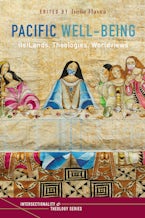- Home
- religion
- philosophy
- How Did Jesus Know He Was God?
How Did Jesus Know He Was God?
Self-Consciousness and Human Knowledge of Christ: Maritain, Rahner, and Weinandy
Imprint: Wipf and Stock
The self-consciousness and human knowledge of Christ is a contemporary christological issue which seeks to understand the awareness that the God-man, Jesus Christ, possessed of himself during his life on earth. The present question primarily concerns itself with exploring how the Son knows that he is the Son in his human mind. Traditionally this question has been asked and answered that, through the beatific vision, the Son knew himself as divine in his human mind. However, recent theories advanced by scholars seem to preclude any notion of beatific knowledge in the Incarnate Son. This book explores the perspectives of three main authors, Jacques Maritain, Karl Rahner, and Thomas Weinandy, in relation to the present question, and attempts to provide an answer for how the Incarnate Son apprehended his divine identity through his human operations. Considered also is the scope of Christ's human knowledge with regard to two specific objects of knowledge. These concern whether the Son as man had an awareness of those for whom he gave his life (Gal 2:20) and whether the Son was really ignorant of the eschatological final "day and hour" (Mark 13:32; Matt 24:36).
William Chami is a student and tutor at the University of Notre Dame at Sydney. He has completed his master’s in theology and is currently pursuing his graduate diploma in philosophy. His research interests include Christology, the Trinity, and patrology.
“William Chami, in his short monograph, has addressed an important and fascinating theological issue—that of how Jesus, as the incarnate Son of God, came to know, in a human manner, that he is the Father’s Son. In examining three authors, of whom I am honored to be one of those selected, Chami has placed all of the issues in their historical context, as well as within their contemporary theological setting—and he has done so with meticulous clarity, intellectual creativity, and discriminate judgment. This book is a must-read for anyone addressing the topic of Christ’s human consciousness and knowledge.”
—Thomas G. Weinandy, OFM Cap., former member of the Vatican’s International Theological Commission
“This work should be mandatory reading in every Christology subject. It tackles one of those thorny issues in fundamental theology many would like to avoid, and it does so in a way that makes for easy and exciting reading. One does not have to plough through impenetrable academic jargon. The author can write with clarity without oversimplifying the complexities. It would make a great present for seminarians and other students of theology.”
—Tracey Rowland, St. John Paul II Chair of Theology, University of Notre Dame Australia
“In this great little book William Chami presents the position of three prominent theologians on an important and highly debatable issue in contemporary Christology. Chami not only presents the three stances on the self-consciousness of Christ in a fair and impartial manner, but also carries out an informed and intelligent academic evaluation of them. A great contribution from an emerging, promising scholar.”
—Mariusz Biliniewicz, Associate Dean, Chair of School Research Committee, and Senior Lecturer in Theology, University of Notre Dame Australia
“After a long period of relative consensus that Jesus humanly enjoyed the beatific vision of God, the general question of the nature of Jesus’ human knowledge, and the explicit question of whether or not Jesus knew himself as God with his human mind, are once more ‘live’ questions. Through his analysis and critique of the arguments of three great scholars, Maritain, Rahner, and Weinandy, Chami makes a valuable contribution to the current debate.”
—Peter John McGregor, Lecturer in Theology, Catholic Institute of Sydney











